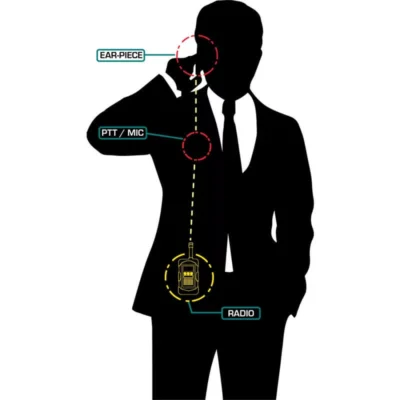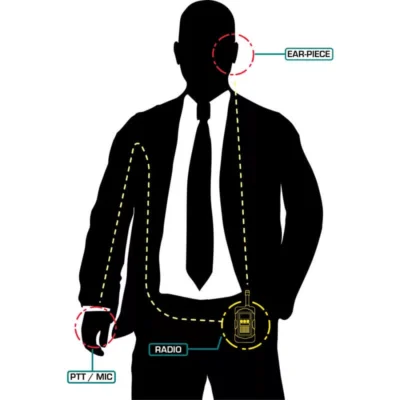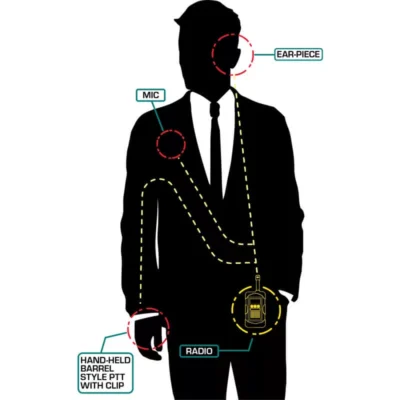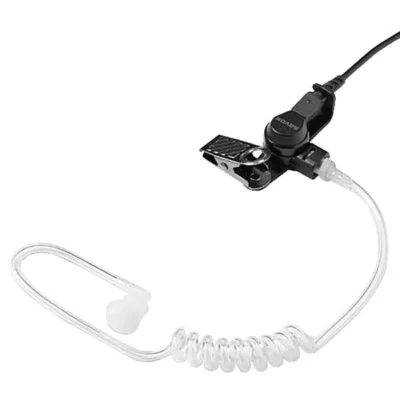Semi Covert kits
Inconspicuous communications earpieces available in a wide range of styles, made from premium & durable material. Explore earpiece options such as C-Shape style, D-Shape style, Acoustic tube or Custom mould. Our covert kits are compatible with a vast selection of popular two way radio models such as Icom, Motorola, Kenwood, Vertex, Hytera, Sepura & more.

A two-way radio earpiece is a type of headset designed to be used with two-way radios. It allows the user to listen and speak through the radio without the need to hold it up to their ear or mouth.
The earpiece typically consists of a small speaker that fits inside the ear canal and a small microphone that attaches near the mouth. The earpiece is connected to the two-way radio via a cable, which can be either straight or coiled for added flexibility.
Two-way radio earpieces are commonly used by security personnel, law enforcement officers, and other professionals who need to communicate discreetly and hands-free while on the job. They can be especially useful in noisy environments where it may be difficult to hear the radio over background noise.
There are different types of two-way radio earpieces available in the market, such as earbud-style earpieces, over-the-ear earpieces, and in-ear-canal earpieces. The choice of earpiece type will depend on the user’s personal preference and specific requirements.
What is the difference between semi-covert and full-covert?
Semi-covert and full covert are terms used to describe different levels of secrecy or concealment in an operation or activity.
Semi-covert operations refer to those that are partially concealed or kept secret, but some aspects of the operation are publicly visible or acknowledged. This means that while the operation may be conducted in a discreet or subtle manner, it is not entirely hidden from public view or awareness. For example, undercover police work or intelligence gathering operations may be considered semi-covert.
On the other hand, full covert operations refer to those that are entirely concealed or hidden from public view or knowledge. These operations are conducted in complete secrecy, and those involved in the operation will not reveal their true identities or the purpose of their activities to anyone outside of the operation. Examples of full covert operations may include espionage or sabotage activities carried out by intelligence agencies or military special forces.
In summary, the main difference between semi-covert and full covert operations is the level of concealment or secrecy involved. Semi-covert operations are partially hidden, while full covert operations are entirely concealed.





